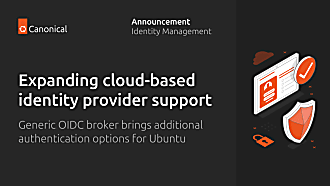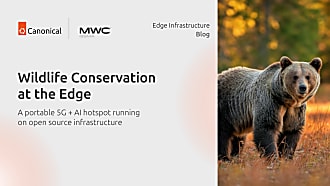Alan Pope
on 12 November 2019

The third Linux Application Summit (LAS) kicks off this week in Barcelona, Spain. Formerly organised under the GNOME project, known as Libre Application Summit, the new LAS is a joint effort between the KDE and GNOME projects. The aim of the conference is to encourage the growth of a vibrant Linux application ecosystem. Canonical are proud sponsors of LAS 2019, and are sending along a team to represent Ubuntu and Snapcraft.
The volunteers on the organising committee each have a long history in the Linux application community. They’ve all worked on platforms and infrastructure to enable new software development for Linux. I took some time to chat with some of the team, and what LAS means for them.
Aleix Pol, representing KDE, has worked on Linux applications for a while, and is hopeful for increased collaboration between application developers and platform maintainers. Aleix told me; “While we [GNOME and KDE] are sizeable organisations, we have massive tasks at hand. We need to create an environment where people can come and create their solutions for all of us.”
This applies both for application developers and those who work primarily on the platforms themselves. He continued; “With GNOME, we share pieces of software, we share users and we even share some of our dreams. Meeting, talking and collaborating can only be beneficial”. Aleix also highlighted the benefits of meeting in person at events like LAS, “There’s a very different kinds of visitor. The ones who have been around will be putting faces to nicknames and having these discussions that IRC and mailing lists can’t sustain”.
LAS isn’t just for the seasoned developers though. Aleix notes there is room for new developers and some socialising too. “The ones who are new will be learning about Linux, about how we discuss things and what we are working on. Meeting key contributors to the system and be able to have a drink with them is a cherry on top,” Aleix added.
Sri Ramkrishna, who originally drove the Libre Application Summit, is equally keen on wider collaboration. “We want our participants, who are technology owners, to work with each other on what our deficiencies are and how we can improve them”. There is a perception among commentators that core technology developers are split but Sri sees it differently. “After the first iteration of LAS, we realised that if we want to really grow this, we can’t do it ourselves. To influence the ecosystem, we need to build partnerships. KDE as the sister project to GNOME is the perfect first step given our joint history over the years.”
Sri is keen for LAS to not be limited to only those two families, but to be even more welcoming. “We want to continue to evolve and to add more partners if we want to reach our goal of creating a sustainable ecosystem around applications, ” Sri commented. “With the goal that ultimately, people should leave thinking that we are a singular community working together rather than a set of fiefdoms working in isolation as we have in the past.”
Along with other organisers, Sri wants the Linux application ecosystem to have sustainable business models, improve on-boarding and motivate developers. “We need to lower the bar of entry for working on community projects using container based technologies like Flatpak and snaps. Secondly, we need to improve how developers are compensated for applications – whether that is monetary compensation or providing ways for volunteers to more easily participate in an applications they like,” Sri said.
Sri is bullish about the future of application development on and for Linux, “Building a working framework across this ecosystem will be a challenge but with a potential for high returns. Its success, however, will show that this community is a powerful one that can act as a surprising influence on the other parts of FOSS. It’s the dragon that is on the verge of waking up.LAS will be the central staging ground for this. It’s worth attending”.
Fellow organiser, Nuritzi Sanchez was frank about the state of Linux desktop development, saying, “One of the best things about the Linux desktop space is its variety and flexibility, but an unfortunate side effect is that there is also widespread fragmentation. Too much fragmentation hurts us, and I think that GNOME and KDE’s collaboration around LAS is a great step towards reducing that fragmentation and working together strategically in order to bring wider benefits to us all”.
Speaking about the gaps in the application space, Nuritzi said “I care about bringing the same quality of applications that I see in closed app ecosystems to the Linux app ecosystem. I think that a way to do that is to expand our focus to a wider variety of things like app design and user experience, broader marketing efforts, and the commercial aspect of creating a viable app ecosystem.”
Nuritzi has been very active through the last year on the organising committee. She’s been very keen to ensure the event is as open and diverse as possible, adding, “We want to make LAS a very inclusive event, and have made many purposeful decisions to encourage participation by people from a wide range of backgrounds”. This has been a thread running through all the planning, Nuritzi added, “From the website’s design and language used, to the outreach we are doing and the travel sponsorship policies we enacted, to the composition of the organisation team — we hope to establish LAS as a place of diversity, inclusion, and innovation.”
At Canonical, we’re keen to see the Linux application ecosystem grow, which is why we’re proud to sponsor LAS 2019. If you cannot make it this year, the media team plans to upload recordings of talks to their Linux Application Summit YouTube channel. Go and subscribe!



